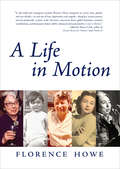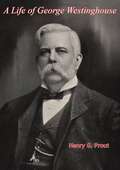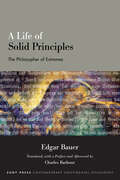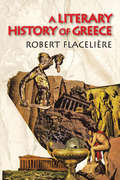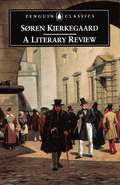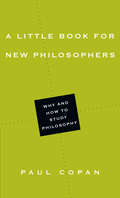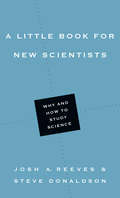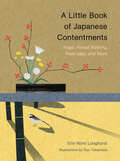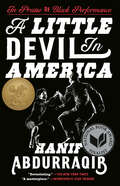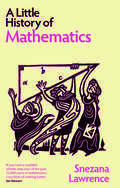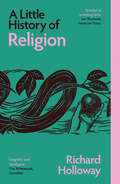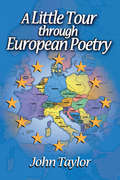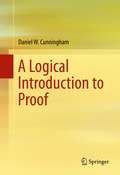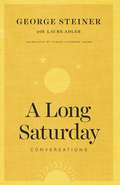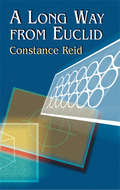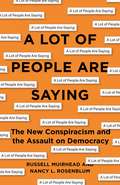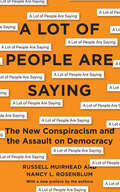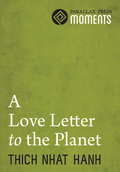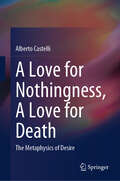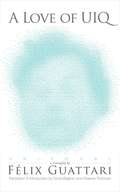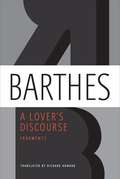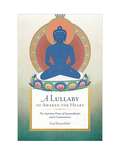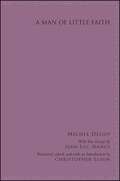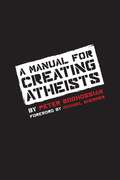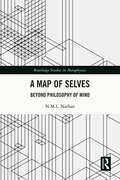- Table View
- List View
A Life in Motion (Jewish Women Writers Ser.)
by Florence Howe&“A sharp and compelling memoir&” of a feminist icon who forged positive change for herself, for women everywhere, and for the world (Rosemary G. Feal, executive director of the Modern Language Association). Florence Howe has led an audacious life: she created a freedom school during the civil rights movement, refused to bow to academic heavyweights who were opposed to sharing power with women, established women&’s studies programs across the country during the early years of the second wave of the feminist movement, and founded a feminist publishing house at a time when books for and about women were a rarity. Sustained by her relationships with iconic writers like Grace Paley, Tillie Olsen, and Marilyn French, Howe traveled the world as an emissary for women&’s empowerment, never ceasing in her personal struggle for parity and absolute freedom for all women. Howe&’s &“long-awaited memoir&” spans her ninety years of personal struggle and professional triumphs in &“a tale told with startling honesty by one of the founding figures of the US feminist movement, giving us the treasures of a history that might otherwise have been lost&” (Meena Alexander, author of Fault Lines).
A Life of George Westinghouse
by Henry G. ProutGEORGE WESTINGHOUSE the man may be overshadowed by his inventions, company, or legend. But in this biography by Henry G. Prout, Westinghouse's personal life and history are recounted along with his many inventions and enterprises -- and his inventions and enterprises were enormous. "He dealt in the same week, and often in the same day, with organization, financial and executive affairs, commercial affairs, and the engineering details of half a dozen companies in two hemispheres," Prout noted. "They were as far apart in kind as the air brake and natural gas, and as far apart in geography as San Francisco and St. Petersburg." This biography covers topics as diverse as power signaling and switching, Westinghouse's use of the alternating current, his activities at Niagara Falls, his European enterprises, his financial methods, and his overall impact on rail transportation and the power industry.-Print ed.
A Life of Solid Principles: The Philosopher of Extremes (SUNY series in Contemporary Continental Philosophy)
by Edgar BauerA translation of the 1843 novella by Edgar Bauer, a significant if overlooked work of German literary history that casts new light on the Young Hegelian movement and, possibly, Karl Marx.In early 1843, the Young Hegelian philosopher and activist Edgar Bauer published a comic novella titled Es leben feste Grundsätze! or A Life of Solid Principles! It told the story of an idealistic young journalist named, significantly enough, Karl. While the work was more or less ignored for one and a half centuries, recent scholarship has suggested that it may contain a fictionalized and deeply critical portrait of Karl Marx. That on its own makes it fascinating and valuable. But it is also an important piece of literary history in its own right. And it offers a powerful way into the life and career of its author—a figure who, despite an enormous amount of interest in the intellectual history of the German Vormärz in recent years, has remained conspicuously overlooked in the literature. This volume combines an original translation of Es leben feste Grundsätze! with a long essay outlining Edgar Bauer’s revolutionary political thought. Along the way, it shows how the Young Hegelian movement constituted a crucial inflection point in the history of the relationship between radical political theory, on one side, and concrete political institutions, on the other.
A Literary History of Greece
by Robert FlaceliereThere are several good histories of Greek literature of various shapes and sizes, but the purpose of this book is not simply to consider the literature of ancient Greece as an isolated subject, treating each of the literary modes - epic, lyric, drama, history, philosophy, and rhetoric - in terms of its own evolution. Instead, Robert Flaceliere provides a Greek history that deals with all the important works of Hellenic literature that are still of interest to contemporary readers; and he does this in chronological order with an accurate account of their historical background.Flaceliere follows the history of Greece down through the centuries as the writer records it. He describes the political atmosphere in the nation and the advances in the other arts that influenced literature. The author understands Sappho's rhapsodies; girlish love in the context of the acceptance of homosexuality in that era. He sympathizes with the unrequited passion of the penniless Archilochos. He appreciates Pindar's pacifist tendencies, Herodotus' upright insistence on truth, and Euripides' doubts about the existence of the gods. For the classical centuries, so rich in talent and genius, the author follows the successive generations systematically so as to distinguish the special features of each, what it owes to the preceding generation and how it paves the way for the next.Since this is a literary history, attention is mainly focused on the writers and their works, but by displaying these in their political, social, artistic and scientific setting, Flaceliere gives a better understanding of the production and significance of these wonderful achievements of the human spirit. Due to the wide range of material presented, "A Literary History of Greece" can be used as a reference book as well as for enjoyment reading.
A Literary Review
by Soren KierkegaardWhile ostensibly commenting on the work of a contemporary novelist, Kierkegaard used this review as a critique of his society and age. The influence of this short piece has been far-reaching. The apocalyptic final sections are the source for central notions in Heidegger's Being and Time. Later readers have seized on the essay as a prophetic analysis of our own time. Its concepts have been drawn into current debates on identity, addiction, and social conformity.
A Little Book for New Philosophers: Why and How to Study Philosophy (Little Books)
by Paul CopanA Little Book for New Philosophers
A Little Book for New Scientists: Why and How to Study Science (Little Books)
by Josh A. Reeves Steve DonaldsonMany young Christians interested in the sciences have felt torn between two options: remaining faithful to Christ or studying science. Heated debates over the past century have created the impression that we have to choose between one or the other. The result has been a crisis of faith for many students. Josh Reeves and Steve Donaldson present a concise introduction to the study of science that explains why scientists in every age have found science congenial to their faith and how Christians in the sciences can bridge the gap between science and Christian belief and practice. If Christians are to have a beneficial dialogue with science, it will be guided by those who understand science from the inside. Consequently, this book provides both advice and encouragement for Christians entering or engaged in scientific careers because their presence in science is a vital component of the church's witness in the world.
A Little Book of Japanese Contentments: Ikigai, Forest Bathing, Wabi-sabi, and More
by Erin Niimi LonghurstDiscover the Japanese philosophies for living a happier, more balanced life in this beautifully illustrated guide.With the longest healthy life spans in the world, Japanese people understand the art of living well. This beautiful book distills traditional Japanese philosophies intrinsic to the culture of wellbeing and provides easy-to-follow exercises for those who want to incorporate these ideas into their daily lives. With sections on kokoro (heart and mind) and karada (body), plus a guide on how to form and nurture good habits, the book includes entries on ikigai (living with purpose), wabi-sabi (the beauty of imperfection and impermanence), shinrinyoku (forest bathing), ikebana (the art of flower arranging), and much more. Richly illustrated, A Little Book of Japanese Contentments is a warm invitation to cultivate contentment in everyday life.
A Little Devil in America: In Praise of Black Performance
by Hanif AbdurraqibNATIONAL BOOK AWARD FINALIST • A sweeping, genre-bending &“masterpiece&” (Minneapolis Star Tribune) exploring Black art, music, and culture in all their glory and complexity—from Soul Train, Aretha Franklin, and James Brown to The Fresh Prince of Bel-Air, Whitney Houston, and Beyoncé ONE OF THE TEN BEST BOOKS OF THE YEAR: Chicago Tribune, The Philadelphia Inquirer, The Dallas Morning News, Publishers Weekly &“Gorgeous essays that reveal the resilience, heartbreak, and joy within Black performance.&”—Brit Bennett, #1 New York Times bestselling author of The Vanishing Half &“I was a devil in other countries, and I was a little devil in America, too.&” Inspired by these few words, spoken by Josephine Baker at the 1963 March on Washington, MacArthur &“Genius Grant&” Fellow and bestselling author Hanif Abdurraqib has written a profound and lasting reflection on how Black performance is inextricably woven into the fabric of American culture. Each moment in every performance he examines—whether it&’s the twenty-seven seconds in &“Gimme Shelter&” in which Merry Clayton wails the words &“rape, murder,&” a schoolyard fistfight, a dance marathon, or the instant in a game of spades right after the cards are dealt—has layers of resonance in Black and white cultures, the politics of American empire, and Abdurraqib&’s own personal history of love, grief, and performance.Touching on Michael Jackson, Patti LaBelle, Billy Dee Williams, the Wu-Tan Clan, Dave Chappelle, and more, Abdurraqib writes prose brimming with jubilation and pain. With care and generosity, he explains the poignancy of performances big and small, each one feeling intensely familiar and vital, both timeless and desperately urgent. Filled with sharp insight, humor, and heart, A Little Devil in America exalts the Black performance that unfolds in specific moments in time and space—from midcentury Paris to the moon, and back down again to a cramped living room in Columbus, Ohio. WINNER OF THE ANDREW CARNEGIE MEDAL AND THE GORDON BURN PRIZE • FINALIST FOR THE NATIONAL BOOK CRITICS CIRCLE AWARD AND THE PEN/DIAMONSTEIN-SPIELVOGEL AWARD ONE OF THE BEST BOOKS OF THE YEAR: The New York Times Book Review, Time, The Boston Globe, NPR, Rolling Stone, Esquire, BuzzFeed, Thrillist, She Reads, BookRiot, BookPage, Electric Lit, The Rumpus, LitHub, Library Journal, Booklist
A Little History of Mathematics (Little Histories)
by Snezana LawrenceA lively, accessible history of mathematics throughout the ages and across the globe Mathematics is fundamental to our daily lives. Science, computing, economics—all aspects of modern life rely on some kind of maths. But how did our ancestors think about numbers? How did they use mathematics to explain and understand the world around them? Where do numbers even come from? In this Little History, Snezana Lawrence traces the fascinating history of mathematics, from the Egyptians and Babylonians to Renaissance masters and enigma codebreakers. Like literature, music, or philosophy, mathematics has a rich history of breakthroughs, creativity and experimentation. And its story is a global one. We see Chinese Mathematical Art from 200 BCE, the invention of algebra in Baghdad&’s House of Wisdom, and sangaku geometrical theorems at Japanese shrines. Lawrence goes beyond the familiar names of Newton and Pascal, exploring the prominent role women have played in the history of maths, including Emmy Noether and Maryam Mirzakhani.
A Little History of Religion
by Richard HollowayFor curious readers young and old, a rich and colorful history of religion from humanity's earliest days to our own contentious times In an era of hardening religious attitudes and explosive religious violence, this book offers a welcome antidote. Richard Holloway retells the entire history of religion--from the dawn of religious belief to the twenty-first century--with deepest respect and a keen commitment to accuracy. Writing for those with faith and those without, and especially for young readers, he encourages curiosity and tolerance, accentuates nuance and mystery, and calmly restores a sense of the value of faith. Ranging far beyond the major world religions of Judaism, Islam, Christianity, Buddhism, and Hinduism, Holloway also examines where religious belief comes from, the search for meaning throughout history, today's fascinations with Scientology and creationism, religiously motivated violence, hostilities between religious people and secularists, and more. Holloway proves an empathic yet discerning guide to the enduring significance of faith and its power from ancient times to our own.
A Little Tour Through European Poetry
by John TaylorThis book is both a sequel to author John Taylor's earlier volume Into the Heart of European Poetry and something different. It is a sequel because this volume expands upon the base of the previous book to include many more European poets. It is different in that it is framed by stories in which the author juxtaposes his personal experiences involving European poetry or European poets as he travels through different countries where the poets have lived or worked. Taylor explores poetry from the Czech Republic, Denmark, Lithuania, Albania, Romania, Turkey, and Portugal, all of which were missing in the previous gathering, analyzes heady verse written in Galician, and presents an important poet born in the Chuvash Republic. His tour through European poetry also adds discoveries from countries whose languages he reads fluently-Italy, Germany (and German-speaking Switzerland), Greece, and France. Taylor's model is Valery Larbaud, to whom his criticism, with its liveliness and analytical clarity, is often compared. Readers will enjoy a renewed dialogue with European poetry, especially in an age when translations are rarely reviewed, present in literary journals, or studied in schools. This book, along with Into the Heart of European Poetry, motivates a dialogue by bringing foreign poetry out of the specialized confines of foreign language departments.
A Logical Introduction to Proof
by Daniel W. CunninghamThe book is intended for students who want to learn how to prove theorems and be better prepared for the rigors required in more advance mathematics. One of the key components in this textbook is the development of a methodology to lay bare the structure underpinning the construction of a proof, much as diagramming a sentence lays bare its grammatical structure. Diagramming a proof is a way of presenting the relationships between the various parts of a proof. A proof diagram provides a tool for showing students how to write correct mathematical proofs.
A Long Saturday: Conversations
by George Steiner Laure AdlerGeorge Steiner is one of the preeminent intellectuals of our time. The Washington Post has declared that no one else “writing on literature can match him as polymath and polyglot, and few can equal the verve and eloquence of his writing,” while the New York Times says of his works that “the erudition is almost as extraordinary as the prose: dense, knowing, allusive.” Reading in many languages, celebrating the survival of high culture in the face of modern barbarisms, Steiner probes the ethics of language and literature with unparalleled grace and authority. A Long Saturday offers intimate insight into the questions that have absorbed him throughout his career. In a stimulating series of conversations, Steiner and journalist Laure Adler discuss a range of topics, including Steiner’s boyhood in Vienna and Paris, his education at the University of Chicago and Harvard, and his early years in academia. Books are a touchstone throughout, but Steiner and Adler’s conversations also range over music, chess, psychoanalysis, the place of Israel in Jewish life, and beyond. Blending thoughts on subjects of broad interest in the humanities—the issue of honoring Richard Wagner and Martin Heidegger in spite of their politics, or Virginia Woolf’s awareness of the novel as a multivocal form, for example—with personal reflections on life and family, Steiner demonstrates why he is considered one of today’s greatest minds. Revealing and exhilarating, A Long Saturday invites readers to pull up a chair and listen in on a conversation with a master.
A Long Way from Euclid
by Constance ReidMathematics has come a long way indeed in the last 2,000 years, and this guide to modern mathematics traces the fascinating path from Euclid's Elements to contemporary concepts. No background beyond elementary algebra and plane geometry is necessary to understand and appreciate author Constance Reid's simple, direct explanations of the arithmetic of the infinite, the paradoxes of point sets, the "knotty" problems of topology, and "truth tables" of symbolic logic. Reid illustrates the ways in which the quandaries that arose from unsolvable problems promoted new ideas. Numerical concepts expanded to accommodate such concepts as zero, irrational numbers, negative numbers, imaginary numbers, and infinite numbers.Geometry advanced into the widening territories of projective geometry, non-Euclidean geometries, the geometry of n-dimensions, and topology or "rubber sheet" geometry. More than 80 drawings, integrated with the text, assist in cultivating a grasp of the abstract foundations of modern mathematics, the search for truly consistent assumptions, the recognition that absolute consistency is unattainable, and the realization that some problems can never be solved.
A Lot of People Are Saying: The New Conspiracism and the Assault on Democracy
by Nancy L. Rosenblum Russell MuirheadHow the new conspiracists are undermining democracy—and what can be done about itConspiracy theories are as old as politics. But conspiracists today have introduced something new—conspiracy without theory. And the new conspiracism has moved from the fringes to the heart of government with the election of Donald Trump. In A Lot of People Are Saying, Russell Muirhead and Nancy Rosenblum show how the new conspiracism differs from classic conspiracy theory, why so few officials speak truth to conspiracy, and what needs to be done to resist it.Classic conspiracy theory insists that things are not what they seem and gathers evidence—especially facts ominously withheld by official sources—to tease out secret machinations. The new conspiracism is different. There is no demand for evidence, no dots revealed to form a pattern, no close examination of shadowy plotters. Dispensing with the burden of explanation, the new conspiracism imposes its own reality through repetition (exemplified by the Trump catchphrase “a lot of people are saying”) and bare assertion (“rigged!”).The new conspiracism targets democratic foundations—political parties and knowledge-producing institutions. It makes it more difficult to argue, persuade, negotiate, compromise, and even to disagree. Ultimately, it delegitimates democracy.Filled with vivid examples, A Lot of People Are Saying diagnoses a defining and disorienting feature of today’s politics and offers a guide to responding to the threat.
A Lot of People Are Saying: The New Conspiracism and the Assault on Democracy
by Nancy L. Rosenblum Russell MuirheadHow the new conspiracists are undermining democracy—and what can be done about itConspiracy theories are as old as politics. But conspiracists today have introduced something new—conspiracy without theory. And the new conspiracism has moved from the fringes to the heart of government with the election of Donald Trump. In A Lot of People Are Saying, Russell Muirhead and Nancy Rosenblum show how the new conspiracism differs from classic conspiracy theory, how it undermines democracy, and what needs to be done to resist it.
A Love Letter To The Planet
by Thich Nhat HanhA passionate appeal for ecological mindfulness and strengthening our relationship to the Earth. Based on the best selling The World We Have.
A Love for Nothingness, A Love for Death: The Metaphysics of Desire
by Alberto CastelliThis book aims at explaining romantic love between straight adults through literary texts of the western canon from the nineteenth and twentieth century. Each chapter comes with a multidisciplinary approach in which protagonists are mutilated in their quest for loving as alternative to annihilation. The book emphasizes love as an obsession, thus as an exploration of the mind. From the passion-myth of Tristan and Isolde to the nihilist modernist representations, the western world has created a perverse concept of love. A love for nothingness, for death. Narcissistic and at times destructive, love is gained by overcoming obstacles. If without obstacles there is no love, then love becomes love for obstacles. Within this masochistic frame, love, falling in love, being loved always stand at the edge of pathology. At its core this book narrates a love story, more precisely a story of loves, the haunting evocation of a desire that by its very nature cannot be fulfilled. Inherent in the nature of love is a subtle dialectical activity between presence and absence, between creation and destruction, reality and void. Accordingly, the narrative raises questions that the past two centuries were incapable of answering. Does love only last the time of a kiss? Is its promise fatally destined to dissolve? What about violence? Physical, emotional, temporal. Is it an ineliminable part of love or its most extreme profanation? And what is the mystery that accompanies loves that know how to last without resigning themselves to the death of desire? It is to answer some of these questions that I wrote this text. Love is an unconscious process that dominates reason and destroys it when reason cannot be a mode of communication. Hence, the amorous romance is madness and this text is written as a loud reminder.
A Love of UIQ (Univocal)
by Félix GuattariThroughout a large part of the 1980s, Félix Guattari, known for his collaborations with Gilles Deleuze and his experimental and groundbreaking practices in psychotherapy, decides to shift his experimental work into a different medium of artistic and creative thought practice: the world of science fiction. Part self-analysis, part cinematic expression of his theoretical work, Guattari&’s screenplay merges his theoretical concepts with his passion for comic books, free radio movements, and film. So begins Guattari&’s journey to write a screenplay wherein a group of squatters makes contact with a superior intelligence coming from the infinitely small Universe of the Infra-quark (UIQ). Guattari worked feverishly on his film, attempting to secure a budget, traveling to Hollywood, and enlisting the help of American screenwriter Robert Kramer. But the film would never see the light of day. Through the important archival work of artists, Silvia Maglioni and Graeme Thomson, Guattari&’s script is now published here, for the first time in English.
A Lover's Discourse: Fragments
by Richard Howard Roland BarthesA Lover's Discourse, at its 1978 publication, was revolutionary: Roland Barthes made unprecedented use of the tools of structuralism to explore the whimsical phenomenon of love. Rich with references ranging from Goethe's Werther to Winnicott, from Plato to Proust, from Baudelaire to Schubert, A Lover's Discourse artfully draws a portrait in which every reader will find echoes of themselves.
A Lullaby to Awaken the Heart: The Aspiration Prayer of Samantabhadra and Its Commentaries
by Karl BrunnhölzlA key Dzogchen text—available together with its Tibetan commentaries, including from the fifteenth Karmapa—from a preeminent translator.The Aspiration Prayer of Samantabhadra, one of the most famous and often-recited Dzogchen texts, is at once an entreaty by the primordial buddha, Samantabhadra, that all sentient beings recognize the nature of their minds and thus become buddhas, and also a wake-up call by our own buddha nature itself. This monumental text outlines the profound view of Dzogchen in a nutshell and, at the same time, provides clear instructions on how to discover the wisdom of a buddha in the very midst of afflictions. In this volume, Karl Brunnhölzl offers translations of three versions of the Aspiration Prayer and accompanies them with translations of the commentaries by Jigmé Lingpa, the Fifteenth Karmapa, and Tsültrim Sangpo. He offers further contextualization with his rich annotation and appendices, which include additional translation from Jigmé Lingpa, Longchenpa, and Patrul Rinpoche. This comprehensive, comprehensible book illuminates this profound text and greatly furthers our understanding of Dzogchen—and of our own nature.
A Man of Little Faith (SUNY series in Contemporary French Thought)
by Michel DeguyIn A Man of Little Faith the French poet and philosopher Michel Deguy reflects on the loss of religious faith both personally and culturally. Disenchanted not only with the oversimplifications of radical atheism but also with what he sees as an insipid sacralization of art as the influence of religion has waned, Deguy refuses to focus on loss or impossibility. Instead he actively suspends belief, producing a poetic deconstruction that, though resolutely a-theistic, makes a plea for an earthly piety and for the preservation of the relics of religion for the world to come. Two essays by Jean-Luc Nancy and a recent interview with Deguy are included, which reveal the impact and implications of Deguy's ongoing reflection and its significance within his generation of French thought.
A Manual for Creating Atheists
by Michael Shermer Peter BoghossianFor thousands of years, the faithful have honed proselytizing strategies and talked people into believing the truth of one holy book or another. Indeed, the faithful often view converting others as an obligation of their faith—and are trained from an early age to spread their unique brand of religion. The result is a world broken in large part by unquestioned faith. As an urgently needed counter to this tried-and-true tradition of religious evangelism, A Manual for Creating Atheists offers the first-ever guide not for talking people into faith—but for talking them out of it. Peter Boghossian draws on the tools he has developed and used for more than 20 years as a philosopher and educator to teach how to engage the faithful in conversations that will help them value reason and rationality, cast doubt on their religious beliefs, mistrust their faith, abandon superstition and irrationality, and ultimately embrace reason.
A Map of Selves: Beyond Philosophy of Mind (Routledge Studies in Metaphysics)
by N.M.L. NathanA Map of Selves defines a concept of selfhood, radically different from the Cartesian, neo-Humean, materialist and animalist concepts which now dominate analytical philosophy of mind. A self, as this book defines it, is an enduring substance with a quality which is its constant possession, which it does not share with any other substance, and which is often remembered by it as its own. The author maintains that we are selves as so defined. He criticises the panpsychist theory that material objects are composed of selves analogous to ours, and argues, further, for the existence of at least one transcendent self, whose activity explains both our own existence and the existence of the natural world. He ends by considering whether things would be worse for us if selves as the book defines them did not exist, and we were, as some philosophers suppose we are, just brains, or sequences of mental events, or hylemorphic structures, or subjects which last no longer than the specious present. Nathan’s carefully argued and original book will be of interest to researchers in metaphysics and philosophical psychology, and to their students.
